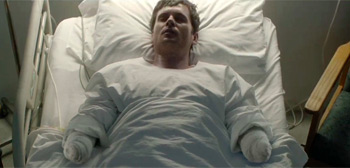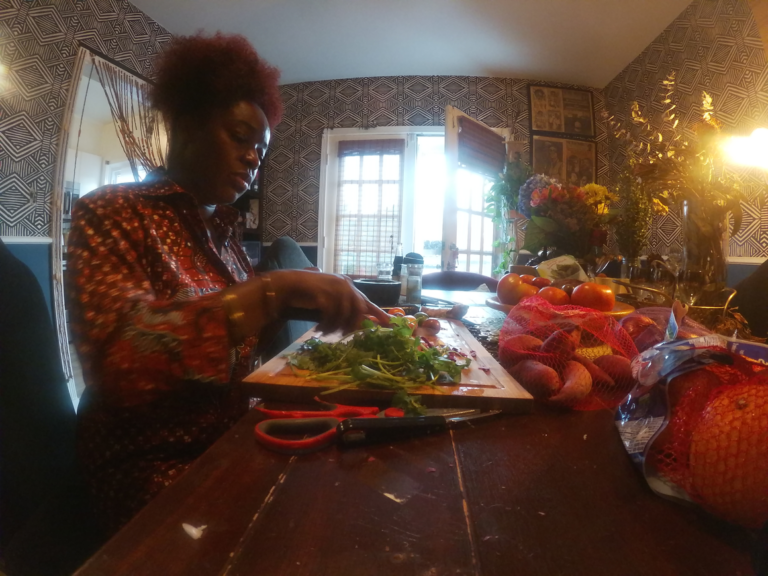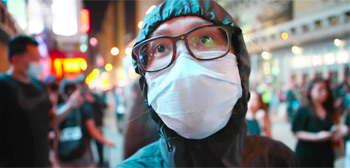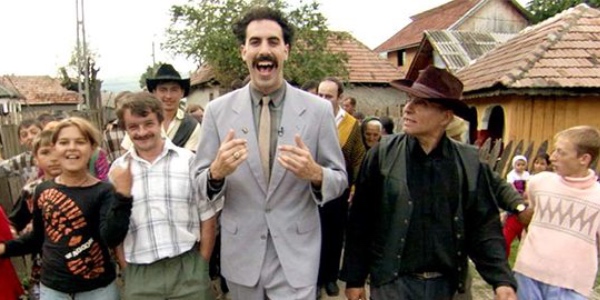City, State and Town: Exploring Frederick Wiseman’s U.S.A.
It would be shortsighted and misguided to believe that Donald Trump is solely responsible for all of the problems that plague the United States of America and its government, but needless to say, in the aftermath of his four years as president, the notion of proper governance — however one happens to define it — is at the top of many minds. And who better to look to for an examination of what government can and should be than Frederick Wiseman? The 91-year-old filmmaker, renowned for his in-depth explorations of important institutions in the United States, is back again with a timely new documentary: City Hall, a four-and-half-hour epic chronicling the day-to-day governance of Wiseman‘s hometown of Boston, led by Mayor Martin J. Walsh (recently nominated by President Joe Biden to be Secretary of Labor).
As befits the political climate we find ourselves in, Metrograph is presenting City Hall alongside two previous Wiseman documentaries focused on democracy and community: State Legislature and Monrovia, Indiana. As Metrograph notes, “To understand our country, and how we arrived at this moment, look no further than Frederick Wiseman.” I wholeheartedly agree. In Wiseman’s eyes, no detail is too small or too unimportant to depict on screen; he manages to elevate seemingly mundane moments into something cinematic simply by virtue of pointing his camera at them. With a total runtime of more than 10 hours, this loose trilogy of films paints a nuanced portrait of the wide range of work that is necessary if we want to even attempt to keep the so-called “American Experiment” from imploding.
State Legislature
Released in 2007, State Legislature showcases the everyday workings of the Idaho legislature across an entire 12-week session. As one representative tells a group of student visitors, he does not make a living working in the government; it’s essentially three months of volunteer work and then he has to go back to work on his ranch and “live with what we did here.” That includes debating issues and ideas such as microchipping cows imported from Canada in order to better control the spread of mad cow disease; combatting the then-relatively new crime of video voyeurism (a problem instigated by the “new cell phone with the camera built-in”); and, in one of the film’s later scenes, deciding whether or not to pass a resolution condemning same-sex marriage (in the end, they opt not to, but it has less to do with equality and more to do with a variety of procedural excuses).
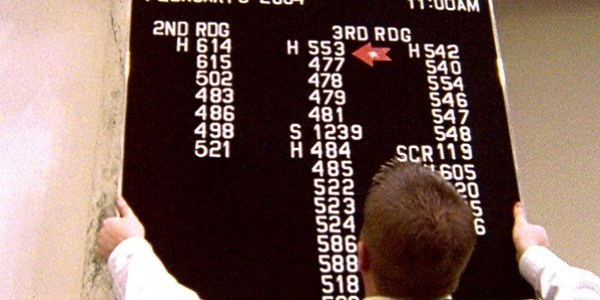
Throughout State Legislature, one gets a sense of the importance not just of the political process but of letting everyday people have a voice in it. In a debate over whether they should do away with the rule that only people within one-mile of a proposed project can offer feedback on it, one representative argues, “I think the government belongs to the people, and the people should have input into the process.” Placing often arbitrary limits on who can speak out on a topic greatly limits the number of people who can provide input, and while that might make it easier to push projects through — another person argues that if they didn’t have these limits in place, they’d never get anything done — it also makes constituents feel less represented by their government and its actions. And as one lawmaker notes, it’s better to have the people inside talking to them than on the outside talking about them.
In another scene, members of the community get up in front of a committee to offer their feedback on a proposed American Heritage Monument to be housed inside the state capitol building, and the documents that should be included there. We see a rabbi speak out against including the 10 Commandments, followed by a local woman who gives an oddly impassioned defense for why they should be there (it involves vague proclamations about values), before another speaker details the various Greek and Roman writers that had a greater influence on American ideas of democracy and the republic than the Bible did. The juxtaposition of these community members making different arguments about the separation of church and state with the multiple instances of prayer occurring within the capitol itself tells you a lot not just about the state of Idaho, but about our country as a whole and the values it selectively purports to represent.
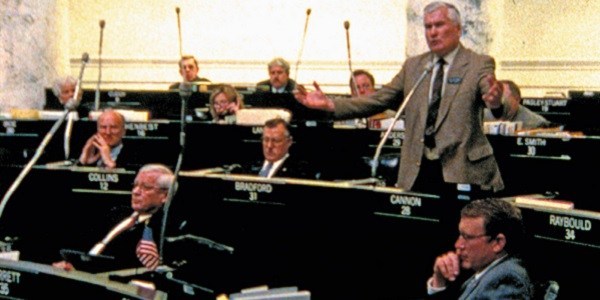
With an approximately three-and-a-half-hour running time, not everything highlighted in State Legislature is as fascinating as the moments I mentioned above were to me. Yet even the driest of political topics, when presented by lawmakers who are passionate about them — for better or for worse — end up more engaging than one would have initially expected. The political process involves far more than just the big, sweeping resolutions that make the headlines, a point that is driven further home by Wiseman’s Monrovia, Indiana.
Monrovia, Indiana
Released in 2018, Monrovia, Indiana explores everyday life in this seemingly average Midwestern town, chronicling everything from a conversation over where to install new benches, to a celebration of 50 years of service at a Masonic lodge, to a bustling auction of farm equipment. Over the course of two and a half hours, Wiseman takes us inside several local businesses, allowing us to watch employees at a pizzeria preparing the evening’s orders and a mattress salesman convincing customers of the importance of a waterproof cover, and sprinkles the film with lingering shots of grassy fields and quaint streets that highlight the picturesque way of life that persists in places like this. The result is a meditation on the values, activities, and moments that comprise a way of life often talked about in this country but rarely understood in all of its complexity.
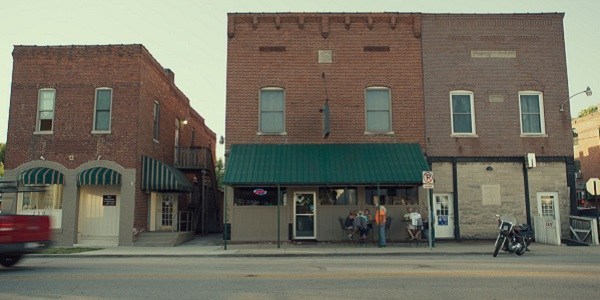
At one point in the film, we eavesdrop on a gathering of elderly men in a local diner, where one bemoans how difficult his post-surgery physical therapy has been: “I don’t have the zip that I want to have.” His gruff admission of disappointment and weakness and his friends’ encouraging responses are a far cry from most of the harsh stereotypes peddled about people in this part of the country. That is not to say that Monrovia, Indiana provides a radically unfamiliar vision of the American Heartland; one merely has to look to the moment in which a local committee obediently says the Pledge of Allegiance and a prayer before getting down to business to be reminded that some stereotypes have a basis in truth. But it does provide an empathetic look at the real human beings whose lives are often glossed over by such assumptions.
I grew up in Central New York, yet much in Monrovia, Indiana reminded me of my own childhood, whether it be the bustling fair booths hawking shirts with cringeworthy slogans about guns or the school band concert watched by an audience that looked like it wanted to be literally anywhere else on earth. Towns like this might seem unimportant to anyone who doesn’t live there, but to those who do, they often constitute the entirety of their world. And yet, as several people in the film bemoan, towns like Monrovia are also dying.
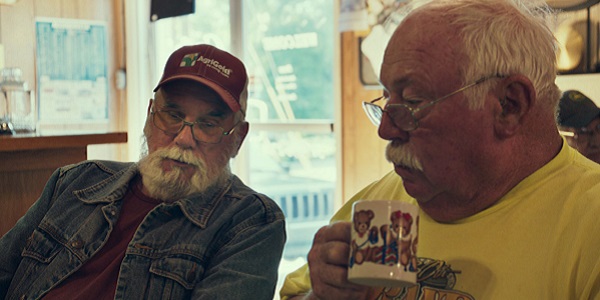
Ways of increasing the shrinking population of Monrovia and the surrounding area, including building more appealing housing, are addressed by the hardworking local officials who Wiseman visits multiple times in the film, but that leads to concerns about changing the demographics of the area. Either way, it’s clear that the way of life in places like Monrovia is bound to change in the near future. Yet in ending his film with a lengthy scene at a funeral, Wiseman reminds us that while some aspects of this life may come to an end, the tight-knit bonds of loyalty and community that are the beating heart of Monrovia are capable of persisting.
City Hall
With City Hall, Wiseman provides us with a keen look at all the little pieces that keep the hulking machine that is the city of Boston running. Like many of the issues highlighted in State Legislature, some of these pieces may seem small and insignificant, yet if you remove just one, the entire system will fall apart. Presiding over it all is Mayor Walsh, a son of Irish immigrants and recovering alcoholic who rose from the leadership of the local construction union through the state legislature before becoming mayor in 2014. It’s hard to think of anyone better suited to guide Boston through the various trials and tribulations that plague local government than this local lad done good, and indeed, whether he’s speaking to a group of Latinx government employees about diversity or to a group of elderly veterans celebrating their military service, there is a deep undercurrent of authenticity and caring in his voice that makes him incredibly likable (and I say that as someone predisposed to hate both government officials and Boston).
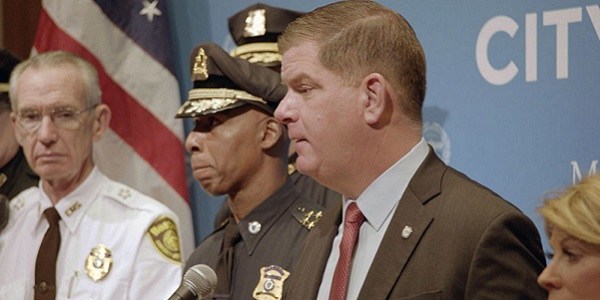
Wiseman’s camera enters almost every space in city hall and follows several government employees outside of the building as they call on people in need, including an elderly man who needs help getting rid of the rats in his city-sanctioned house. In one dialogue-free but fascinating sequence, we watch as sanitation employees crush a mattress, a box spring, and even a large backyard grill in the back of a garbage truck. (It may be the child in me, but I literally shrieked in delight when that grill was crunched into oblivion.) In contrast with the Idaho legislature’s debate over whether to condemn same-sex marriage, we witness a touching ceremony between two women at city hall, with the official noting during the exchange of rings that “this is my favorite part.” Her job may have little in common with that of the sanitation employees, but as Wiseman makes clear, both are crucial for the city to function smoothly and fairly.
In one particularly impactful scene, we watch as a small group of men — white and Asian — attend a community meeting in the hope of getting their approval to open a cannabis dispensary in Dorchester. What follows is an example of civic engagement at its finest as the community members — mostly Black folks — argue that this business will do their community no good if it clogs all the sidewalks with foot traffic, doesn’t hire any locals, and attracts more police attention (especially since this neighborhood already receives more than its fair share). In the end, several attendees decide that the entire process of getting these kinds of approvals needs to change, and plan to act accordingly. This sequence provides yet more proof that the political process can and should obtain its power from the people; after all, if it doesn’t, what’s the point?
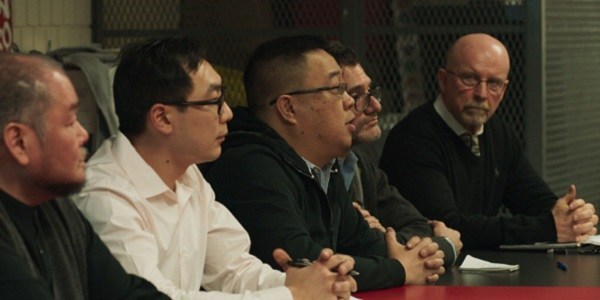
Like he did in Monrovia, Indiana, Wiseman intersperses these scenes of political and social engagement with establishing shots of the city itself. In the case of Boston, these often highlight the city’s diversity: an African market, a Dominican restaurant, a Buddhist center. Throughout it all, Mayor Walsh is there, in an ever-changing array of ties, reminding his constituents and his employees alike that even though the federal government is currently in disarray, they can and should set an example in how they govern Boston. Because of this, City Hall feels like a much more optimistic film than either State Legislature or Monrovia, Indiana, and a fitting coda for the presidential administration that just ended. It’s the responsibility of our new officials to govern better — and of us to hold them accountable.
Conclusion
A deeply observant filmmaker whose style epitomizes the old adage of “show, don’t tell,” Wiseman does not appear on screen in any of the three films highlighted here, nor does he utilize any of the expected elements of the documentarian toolbox such as musical scoring, lower thirds or talking-head interviews in order to aggressively direct his viewers’ feelings about a subject in a particular direction. Rather, his thoughtfully constructed films allow the audience to come to their own conclusions about what he has chosen to present. And while State Legislature, Monrovia, Indiana, and City Hall each look at different levels of governance in three very different parts of the United States, they all present similar stories regarding the importance of public service, great and small.
What do you think? Are you familiar with the films of Frederick Wiseman? Share your thoughts in the comments below.
City, State & Town: Three by Frederick Wiseman is screening via Metrograph through February 10.
Does content like this matter to you?
Become a Member and support film journalism. Unlock access to all of Film Inquiry`s great articles. Join a community of like-minded readers who are passionate about cinema – get access to our private members Network, give back to independent filmmakers, and more.
Join now!

